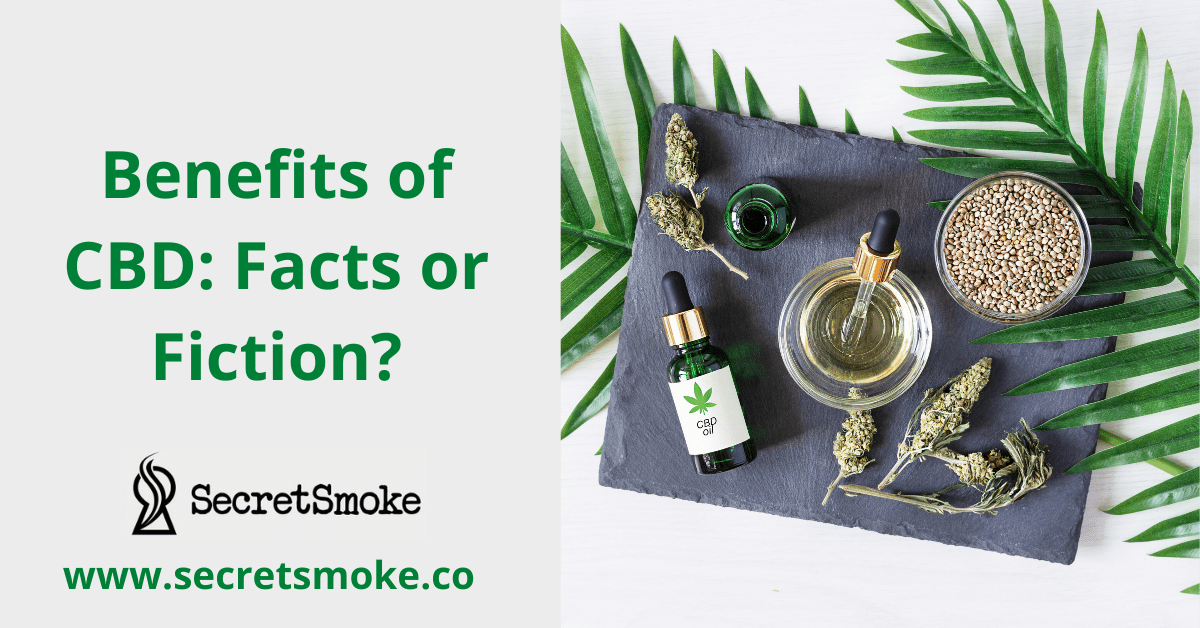Benefits of CBD: Facts or Fiction?
error-oops | Posted on |

Claims about the therapeutic potential of CBD are ubiquitous online. The World Health Organization, like any other agency, has identified a good safety profile for CBD that poses no risk of abuse. More and more people around the world are asking their doctors if CBD is a useful treatment for them. From capsules and oils to topical creams and oral sprays, the CBD epidemic has begun.
However, recent studies with Sante cannabis suggest that medical cannabis treatments with high CBD content lead to only a slight improvement in symptoms.
Does evidence of CBD effectiveness support hype?
Cannabidiol, or CBD, is the major cannabinoid found in hemp and is generally the second most abundant cannabinoid in cannabis plants. More recently, the Canadian Medical Cannabis Access Program has developed a variety of cannabis and medical cannabis products, primarily CBD, but traces such as THC are being developed. There are cannabinoids.
CBD is known for its antiepileptic and anxiolytic effects and is supported by clinical and preclinical evidence. Some studies have also shown anti-inflammatory, immunomodulatory, antipsychotic, and neuroprotective effects. Nevertheless, the mechanism of effect of CBD remains poorly understood, and the lack of evidence to support many of its potential therapeutic properties appears to be a barrier to its clinical use.
Seizures associated with refractory epilepsy are symptoms with most evidence in favor of the use of CBD. The first CBD drug, Epidiolex®, was approved by the US Food and Drug Administration (FDA) in 2018 as an anticonvulsant in the treatment of Lennox-Gastaut syndrome and Dravet syndrome. It was also approved by the European Medicines Agency in 2019, but is not currently available in Canada.
The results of five randomized controlled trials also suggest moderate evidence that CBD helps reduce psychotic symptoms.
Although there is limited evidence to support CBD as an anxiolytic, Sante Cannabis clinicians have seen good results with CBD-rich treatments to relieve the symptoms of anxiety. The recent increase in the number of long-term, high-quality studies on CBD and anxiety may lead to more compelling results in the coming years. However, mental disorders such as anxiety currently account for only about 6% of patients with Santecannabis.
There is also limited evidence that CBD may serve as a treatment for withdrawal symptoms and cravings associated with substance use disorders.
If you want to know more about the use of CBD and cannabis medical treatment, sign up for our doctor’s training program
CBD vs. CBD and THC
The popularity of CBD has grown partially due to its excellent safety profile and the fact that it does not cause the psychoactive effects normally associated with THC.
These properties contribute to some extent to the impression that CBD has higher medical and therapeutic value than THC. In some countries, authorities have launched medical cannabis access programs that rely solely on CBD treatment programs.
However, Sante Cannabi’s latest clinical studies suggest that high-CBD treatment actually provides only limited improvement in symptom management when compared to treatment plans that combine both CBD and THC.
Depending on your settings, you may need to use THC to increase the patient’s benefits from medical cannabis treatment.
Health cannabis research will be presented at the International Cannabinoid Research Association’s annual symposium and will be published later this year.
This was done for patients who started cannabis treatment at one of four clinics in Quebec between 2017 and 2019. The study followed two groups during this period: a group of 715 patients and a group of 380 patients who were prescribed CBD-rich treatments were prescribed both THC and CBD treatments. It was.
Treatment benefits include a standardized medical questionnaire, baseline (BL) Edmonton Symptom Rating Scale (ESAS), brief pain inventory (BPI), EQ5D, and 3-month follow-up (FUP1). It was evaluated using a validated evaluation tool such as. And 6 months (FUP2).
The study found that patients whose treatment plans were based solely on CBD products reported less improvement and benefit.
Further data and research is needed to further validate these results and check for potential bias.
In the meantime, if there are no results from other studies, it’s probably best to pay attention to the CBD epidemic and perhaps be skeptical. However, Sante Cannabis is keen to continue clinical research on this topic in collaboration with other participants in the science, pharmaceutical and medical fields of cannabis.
Leave a Reply Cancel reply
This site uses Akismet to reduce spam. Learn how your comment data is processed.




One Comment
I could not resist commenting. Perfectly written!| Hildagard Zachary Su